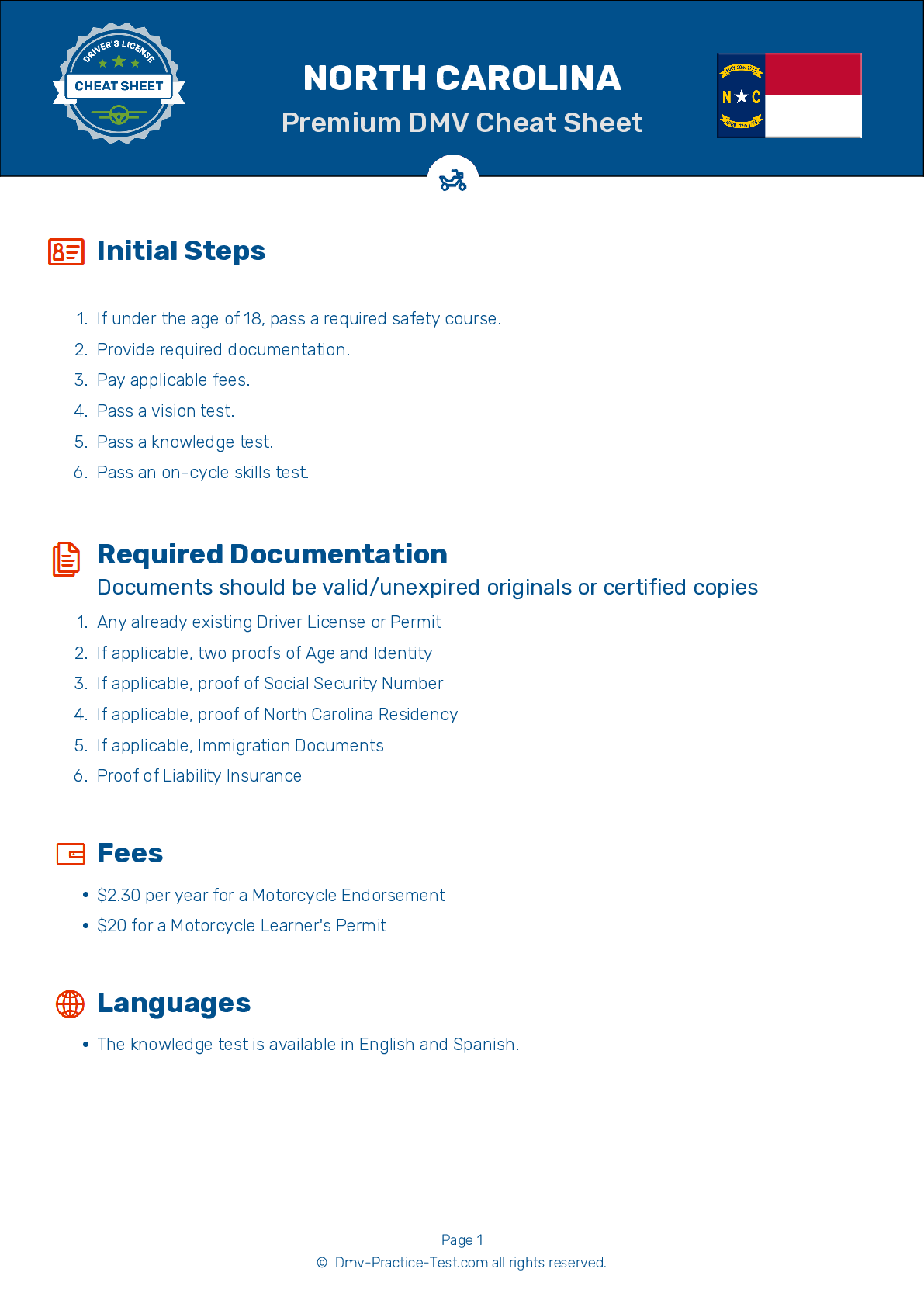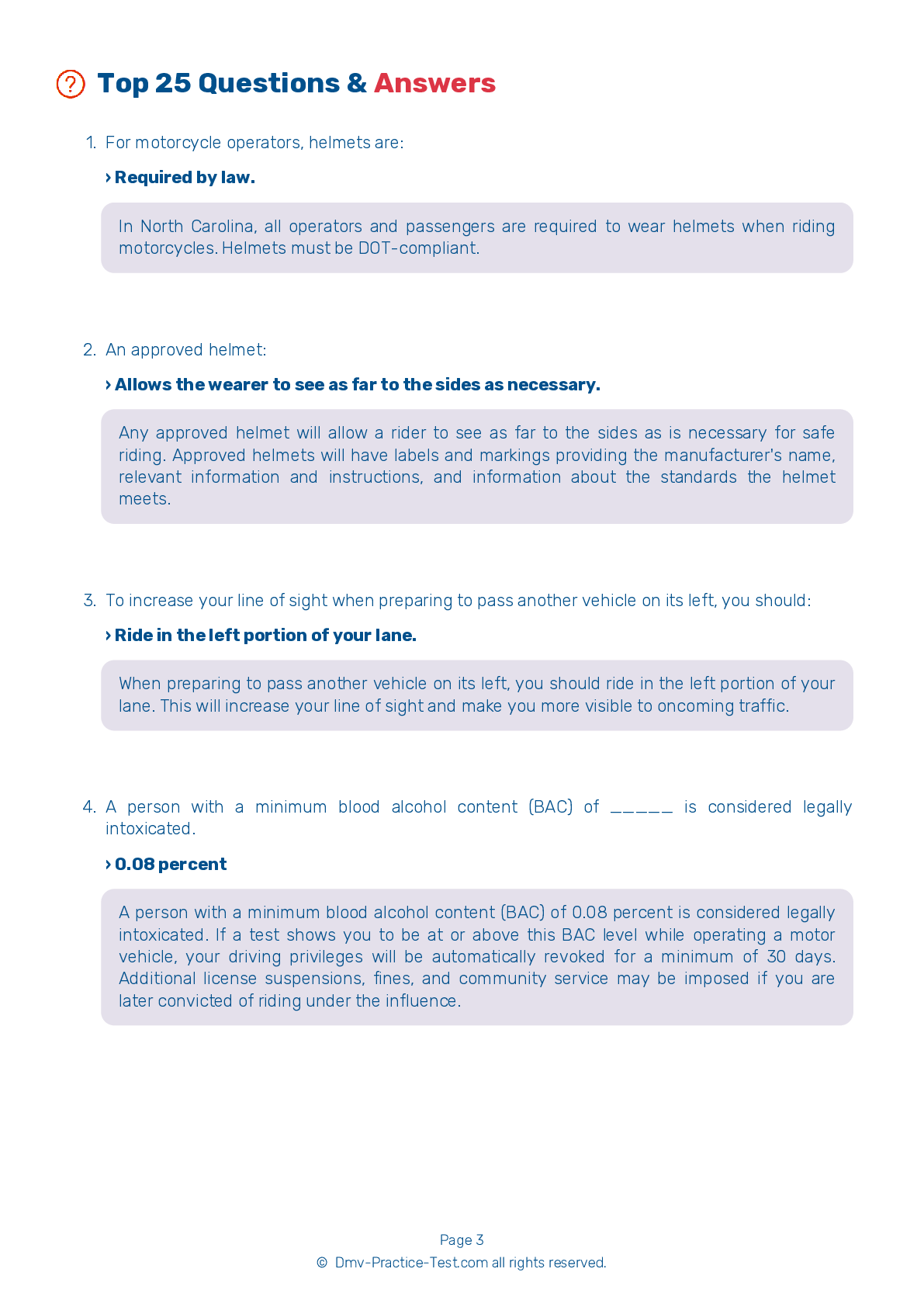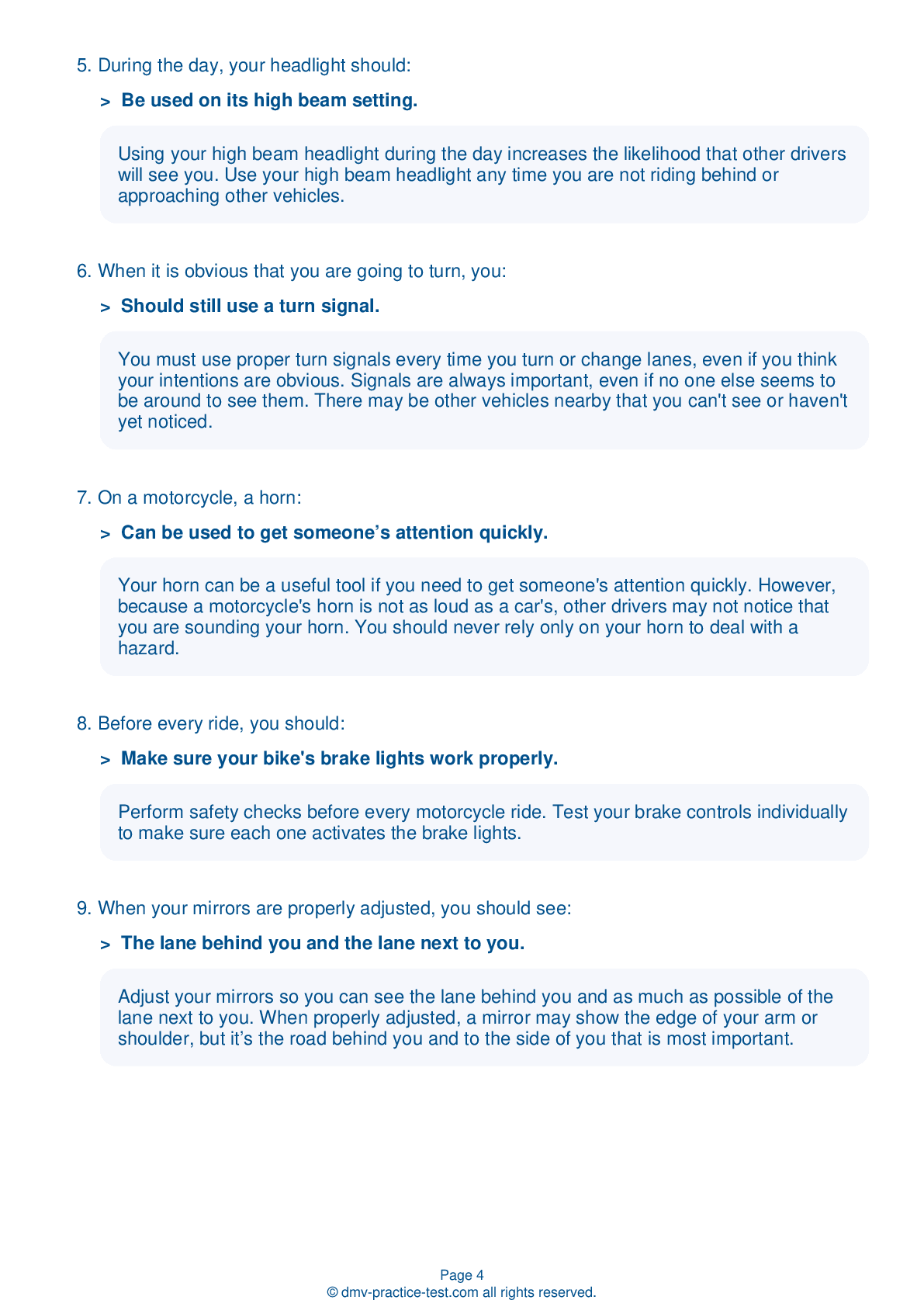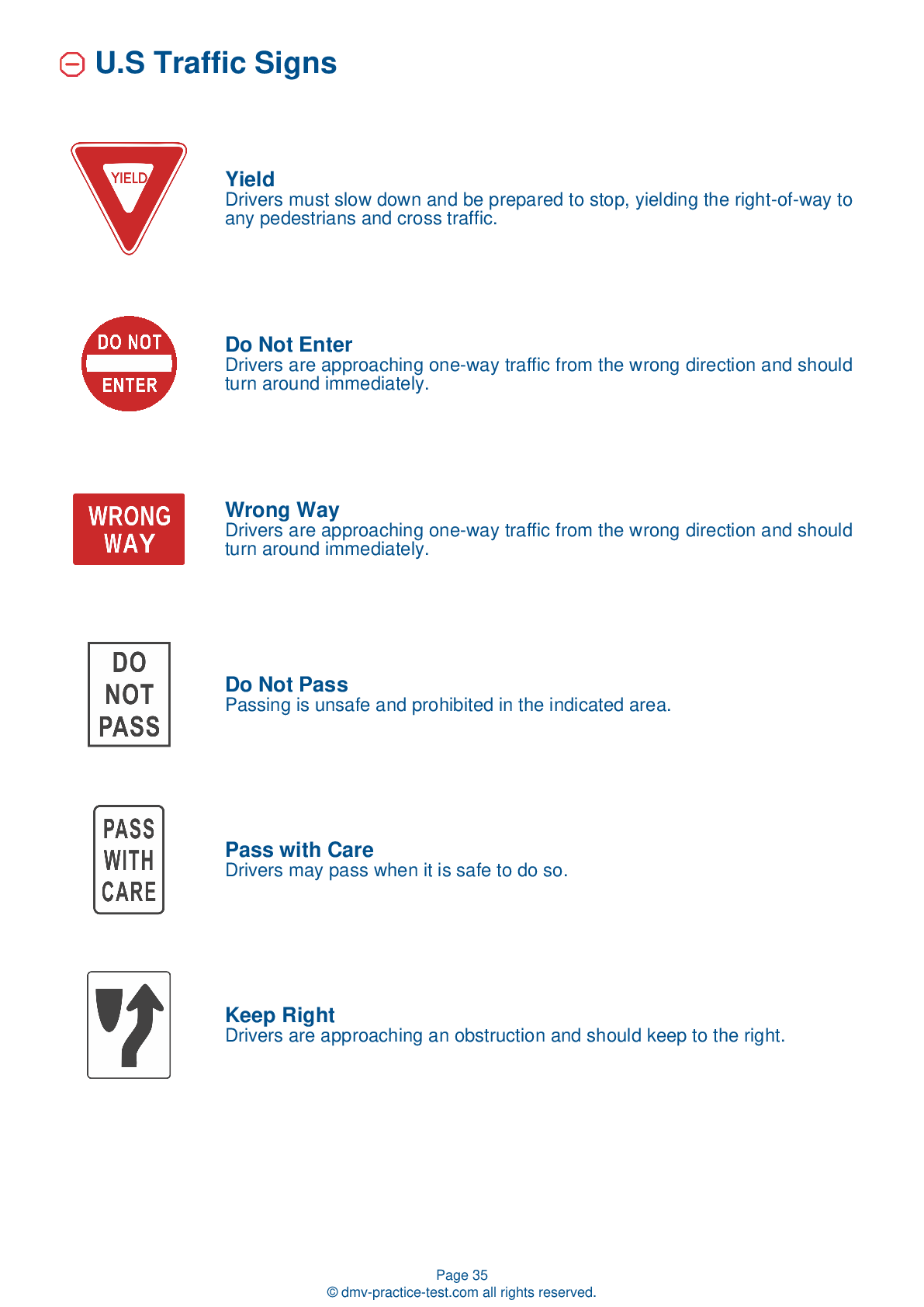Motorcycle Test | License NC 2026 | FREE Online Practice! #12
Take this FREE motorcycle test (license in NC 2026) to check your knowledge of the road rules. To improve your results, download a motorcycle handbook online, study theory, and practice for free on our website. Still worried about how to get a motorcycle license in North Carolina in 2026? Check our website for more sample tests, train as much as possible, and boost your grades!
1 . A primary cause of single-vehicle motorcycle collisions is:
A primary cause of single-vehicle collisions is motorcyclists running too wide in a curve or turn. Taking a turn too wide can cause a motorcycle to leave the roadway or collide with an object.
2 . It may be unsafe to ride alongside a vehicle in the lane next to you because:
If you ride directly alongside a vehicle that is in the lane next to you, the driver may not see you because you are in their blind spot. They may begin merging into your path without knowing you are there. Additionally, if you are directly next to another vehicle, the vehicle will block your path of escape if a hazard should appear in your lane.
3 . On a motorcycle, a horn:
Your horn can be a useful tool if you need to get someone's attention quickly. However, because a motorcycle's horn is not as loud as a car's, other drivers may not notice that you are sounding your horn. You should never rely only on your horn to deal with a hazard.
4 . This road sign means:
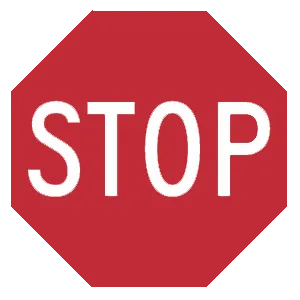
An eight-sided sign always means "stop." You must come to a complete stop and wait for any vehicles or pedestrians to clear the way before proceeding.
5 . When riding a motorcycle, you should:
Because motorcycles are small in stature and have fewer and smaller lights than other vehicles, they can be difficult to see. For your safety, it is best to ride defensively and assume that others on the road do not see you.
See the exact questions that will be on the 2026 North Carolina DMV exam.
99.2% of people who use the cheat sheet pass the FIRST TIME
Jeneen was tired of paying $5/gallon. She got herself a scooter that required the motorcycle license. She studyed the motorcycle test cheat sheet and passed her test the next day!
Christopher tells us how he knew nothing prior to obtaining the motorcycle study guide, and he only got one question wrong because he clicked on the wrong answer by mistake.
